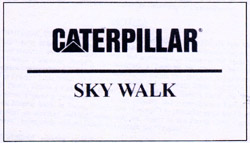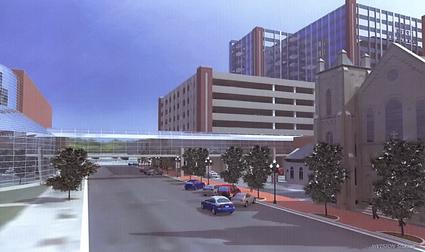Billy Dennis is trying something new in the Peoria blogosphere: You won’t be able to read his original content on the BlogPeoria Project (www.blogpeoria.com) unless you subscribe. Subscriptions are relatively cheap at $3 per month. His post explaining the new system is here.
In a nutshell, blogging is one of those things that most people do as a hobby, in addition to having a “real” job. Since Billy recently got laid off his “real” job (the company he worked for recently closed their Peoria offices), he wants to make blogging his full-time gig. That means he’s planning to do more freelance, original reporting and is hoping that his readers will be willing to pay for the content. Between subscriptions and ad revenue, he believes the business venture will work.
He’ll have no dearth of challenges.
First, even though the Peoria Journal Star is supposedly behind a pay wall, it’s a weak one that’s easily defeated, so their content is still, for intents and purposes, available for free online. Plus, all the TV/radio stations that do news post their news stories on line. And there are the other blogs that will remain free. Billy is consistently going to have to come up with content that is not available from these other sources if he’s going to convince people to pay him $3/month.
Second, Billy will have to overcome his own reputation to a certain extent. People know that he’s capable of doing original reporting, but they also know that he puts up scads of worthless posts, such as “eye candy” and one-line posts that just link to a Journal Star article. So he’s not only going to have to provide good, original content, he’s going to have to overcome negative perceptions people may have about the kind of posts they will get if they subscribe.
Thirdly, several people on a local forum (Peoria.com) have complained that they are getting a virus downloaded to their computer from Billy’s website. Billy is going to have to make sure his site is secure from these sorts of threats. Not only does it anger your customers when their computers get infected, it can also land you on a real-time blacklist which will block your site to any of their subscribers.
Lastly, he’s going to have to edit his posts. Hideous misspellings and grammatical errors are fine for a free blog. But if you’re paying for content, you expect it to be professional and polished.
Don’t get me wrong, though. I think Billy’s plan can work. One person can do quite a bit of reporting if they have the time to commit to it. I think Billy could do $3/month’s worth of reporting easily. And if he gets more subscribers, he could pay freelancers to submit more original works and really build up the site. Having content behind a pay wall would allow him to offer syndicated comics and puzzles if he gets enough revenue to pay for it.
There are lots of possibilities, and I wish him the best of luck.идея за подарък

 One of the most prominent pieces of the hotel redevelopment will carry a corporate sponsor’s name: the Caterpillar Sky Walk.
One of the most prominent pieces of the hotel redevelopment will carry a corporate sponsor’s name: the Caterpillar Sky Walk.